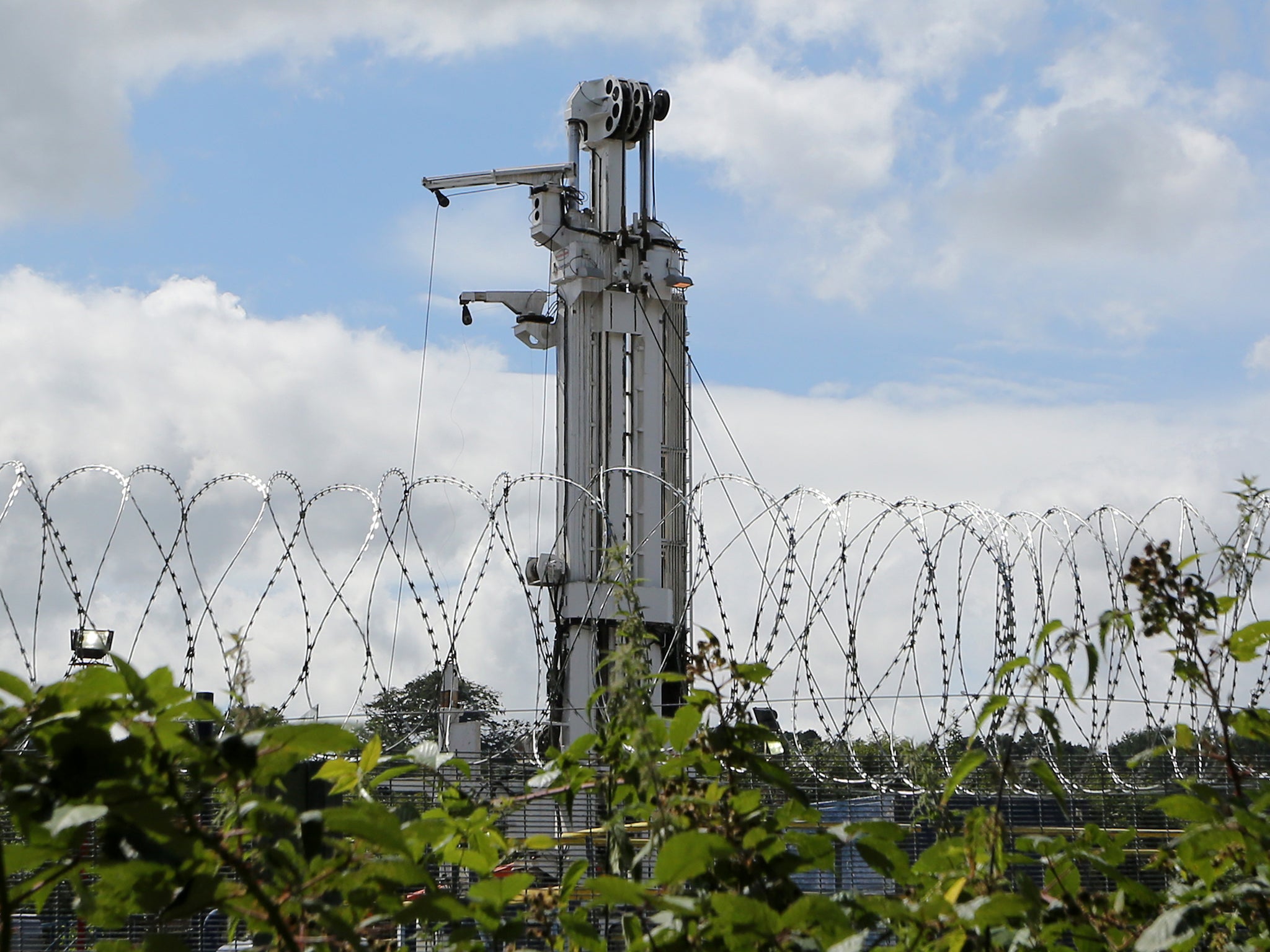Fracking poses 'significant' risk to humans and should be temporarily banned across EU, says new report
A major scientific study says the process uses toxic and carcinogenic chemicals and that an EU-wide ban should be issued until safeguards are in place

A major new scientific study has concluded that the controversial gas extraction technique known as fracking poses a “significant” risk to human health and British wildlife, and that an EU-wide moratorium should be implemented until widespread regulatory reform is undertaken.
The damning report by the CHEM Trust, the British charity that investigates the harm chemicals cause humans and wildlife, highlights serious shortcomings in the UK’s regulatory regime, which the report says will only get worse as the Government makes further budget cuts.
It also warns of severe risks to human health if the new Conservative government tries to fast-track fracking of shale gas across the UK. The “scale of commercial fracking” unleashed by the Government’s eagerness to exploit the technique “should not be underestimated”, it cautions.
The report is due to be published tomorrow – in the week that Lancashire county council votes on two highly contentious planning applications to frack in the county by the company Cuadrilla. If approved, they will be the first commercial fracking sites in the UK.
Last week, council planning officers recommended approval of fracking at one site, Preston New Road, but opposed a second site, Roseacre Wood, but only on traffic concerns, not pollution from fracking itself.
The charity says it will send copies of the report to the Lancashire councillors before they vote.
Late last year, New York became the first US state with significant shale gas reserves to ban fracking for health reasons. Howard Zucker, New York’s acting health commissioner, said he had identified “significant” public health risks and the state’s governor, Andrew Cuomo, compared fracking to passive smoking, a practice that wasn’t understood as a health risk for many years.
The CHEM Trust report also focuses on the potential health effects of the hundreds of chemicals, along with sand and water, that fracking companies use to prise open rocks. It warns of “significant” pollution to air, groundwater and surface waters and threats to wildlife.
Some of these toxic chemicals have been linked to breast, prostate and testicular cancer in humans as well as coronary heart disease, the report says. It outlines how 38 fracking chemicals are “acutely toxic for humans” and a further 20 are mutagenic, or known or possible carcinogens.
The report gives specific examples of hazardous materials used in fracking, including chemicals “associated with leukaemia in humans” and “toxic to sperm production in males”. The trust warns it is “particularly concerned about the use of hormone-disrupting chemicals”.
It is also asking for full disclosure of the chemicals that will be used in the fracking process. Many of the chemicals used in the process remain secret. In the US, nearly 300 products used in fracking fluids contain at least one secret chemical.
The report warns of concerns about “the current regulation of fracking” in the UK, which has “weak points”. Since the passage of the Infrastructure Bill last year, “it is no longer clear how well groundwaters will be protected”. It is particularly concerned that “ongoing cuts in regulatory authorities” will only make matters worse, especially any cuts to the regulator, the Environment Agency, which lost 15 per cent of its staff last year.
Specific issues about fracking in Lancashire are raised, including the suggestion that fracking could harm wildlife in the Wyre estuary, which is a Site of Special Scientific Interest, home to 11 wading bird species of international importance and three of national importance, as well as important orchids and insects. “There is clear potential for fracking to cause serious pollution incidents with major impacts on the UK especially areas of recognised wildlife interest” the study concludes.
The report makes numerous recommendations to protect health, groundwater and the British countryside. These include no fracking operations near drinking water aquifers, the undertaking of environmental impact assessments for all fracking sites, and effective monitoring even after fracking operations have stopped.
Dr Michael Warhurst, the executive director of CHEM Trust, said: “Our investigation has identified key problems with the way fracking is regulated and monitored. Given the potential for pollution and damage to ecosystems, CHEM Trust is calling for a moratorium on fracking in Europe until our recommendations are in place”.
A spokesperson for the Environment Agency said: “We take the environmental risks associated with oil and gas exploration and production very seriously, including hydraulic fracturing for shale gas, and are committed to ensuring that people and the environment are protected.
“Our regulatory controls are in place to protect people and the environment.”
Join our commenting forum
Join thought-provoking conversations, follow other Independent readers and see their replies
Comments
Bookmark popover
Removed from bookmarks